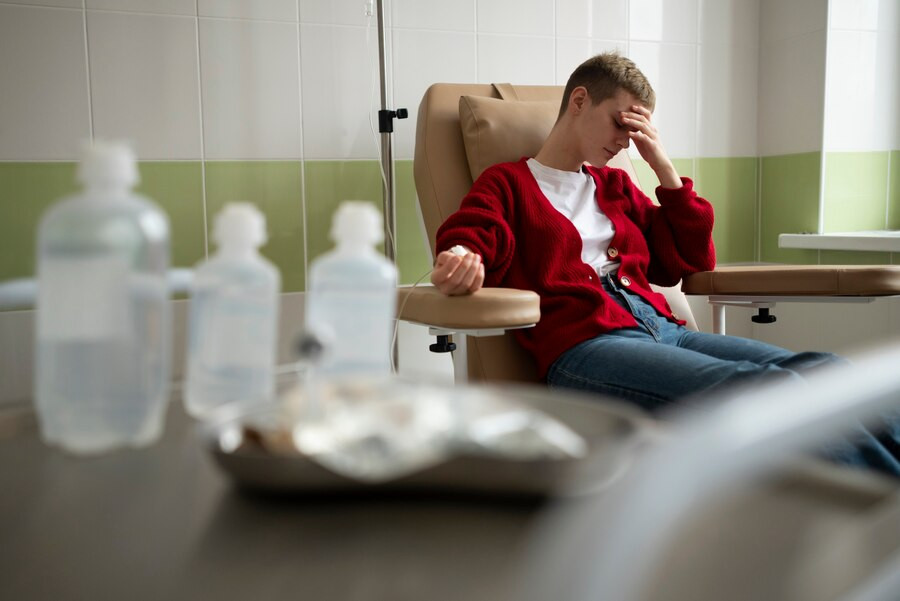Fever is often the body's natural response to infections or inflammation. A temperature ranging from 37.8 to 39 degrees Celsius is usually not a cause for concern in healthy adults and children. It can be managed at home with proper rest, adequate hydration, and fever-reducing medications like paracetamol or ibuprofen.
However, there are instances when fever warrants more attention, particularly if the temperature exceeds 38.9 degrees Celsius or occurs after surgery.
Causes of Fever After Surgery
Postoperative fever is a common complication following surgery. Here are some potential causes:
Normal Inflammatory Response
After surgery, the body may trigger an inflammatory response as part of the healing process. This response is a natural defense mechanism to repair tissue damage.
This inflammation can sometimes cause a mild fever, but it usually resolves on its own within a short period.
Effects of Anesthesia
Anesthesia used during surgery can affect body temperature regulation, sometimes leading to hypothermia during the procedure.
Post-surgery, the body may attempt to restore its temperature to normal levels, potentially causing a fever. Although rare, this type of postoperative fever usually occurs within the first 24 hours after surgery.
Surgical Wound Infection
Infection at the surgical site is one of the more serious causes of fever after surgery. If the wound becomes infected, the body may raise its temperature to combat the infection.
Signs of wound infection include pus discharge, increased pain, redness, swelling, and foul-smelling fluid from the wound.
Pneumonia
Pneumonia is a serious complication that can develop after major chest or abdominal surgery. It occurs when lung function is compromised, leading to fluid or mucus buildup that can result in infection.
Symptoms of postoperative pneumonia include a persistent fever, ongoing cough, shortness of breath, and chest pain.
Deep Vein Thrombosis (DVT)
Deep Vein Thrombosis (DVT) is another condition that can cause fever following surgery, particularly after major procedures. Limited physical activity can slow blood flow in the deep veins, increasing the risk of blood clots.
During surgery, blood vessel injury can also prompt clot formation. DVT is often accompanied by mild fever, swelling, pain, redness, and warmth in the affected leg or foot.
When is A Fever Considered Dangerous?
A mild fever after surgery is typically not dangerous. If you experience fever post-surgery, start by monitoring your symptoms. For a mild fever, ensure you rest well, stay hydrated, and take any fever-reducing medication your doctor recommends.
However, seek immediate medical attention if you experience any of the following:
- High fever above 38.5 degrees Celsius
- Signs of wound infection
- Chest pain or difficulty breathing
- Swelling and pain in the legs
Have other questions related to fever, especially postoperative? You can consult a doctor through the Ai Care application that can be downloaded App Store or Play Store.
Looking for more information on other health conditions? Check here!
- dr Hanifa Rahma
Jennifer Whitlock, RN, MSN, FN (2024). When Is Fever After Surgery a Concern?. Available from: https://www.verywellhealth.com/temperature-after-surgery-3156832
John Hopkins Medicine. After Surgery: Discomforts and Complications. Available from: https://www.hopkinsmedicine.org/health/treatment-tests-and-therapies/after-surgery-discomforts-and-complications
WebMD (2023). What Is Postoperative Fever?. Available from: https://www.webmd.com/a-to-z-guides/what-is-post-op-fever
WebMD (2022). Common Complications After Surgery. Available from: https://www.webmd.com/a-to-z-guides/surgery-complications-side-effects
Penn Medicine. Deep Vein Thrombosis (DVT). Available from: https://www.pennmedicine.org/for-patients-and-visitors/patient-information/conditions-treated-a-to-z/deep-vein-thrombosis
Medline Plus (2022). Surgical wound infection – treatment. Available from: https://medlineplus.gov/ency/article/007645.htm
Bingbing Xiang, et all (2022). Risk Factors for Postoperative Pneumonia: A Case-Control Study. Available from: https://www.ncbi.nlm.nih.gov/pmc/articles/PMC9304902/












